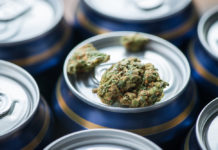Drug addiction is a devastating disease that can consume the life of anyone subjected to it and can dramatically affect all those who are close or associated with that person. No matter what substance you or your loved one are addicted to, whether it be meth, heroin, cocaine or any number of other drugs, fighting addiction is never easy. Perhaps the reason why so many people struggle with addiction on a daily basis is because of the deep, physical, as well as mental changes in your brain caused by using mind-altering chemicals for extended periods of time that also affect the body and state of mind.
When taking a drug, major chemical changes are happening in your brain that actually alter the way that it functions, and over time, how it grows. Once addicted, the brain needs the chemical to function properly, meaning it actively craves it and goes into a type of shock when it doesn’t receive it. This is what keeps an addicted individual coming back to use the substance over and over, despite the obvious harm, depression and overall grief that repeated use will cause.
The path to substance abuse may start with the person voluntarily choosing to use the drug. Maybe it’s just once at first but over time, a pattern begins to form that alters and bends many of the primary structures of one’s life in order to make room for the alien chemical the addict uses to escape or numb themselves to the pressures of life.
Once addicted, it can be extremely hard to break the addiction. Because of the deep, physical and mental roots that drugs and alcohol grow into, making such a radical change from dependency to a sober life can often times be too much for a person to do on their own. When one realizes that their problem may be more than they can handle alone, they often turn to treatment programs that have been specially designed to handle the problem of substance abuse and help its patients take the appropriate steps toward recovery.
How do you know know you need rehab
Lucky for many who suffer from substance addiction, there are treatment programs that can help you achieve recovery from drug abuse. Almost always, they have higher success rates for helping people achieve sobriety than when people try to do it on their own. They also are proven to help people maintain their sobriety more effectively over the long term. So, if you or someone you know is struggling with addiction, how to do you know it’s time to go to rehab? Here is a short list of telltale signs that you should look for:

How to search for a rehab for you
When you first start looking for a rehab clinic that you or a loved one will be checking into, it’s important to first understand exactly what the principles of an effective treatment consist of. Based on studies that have been performed since the 1970s, here are the key principles that should ideally form the basis for an effective treatment program:
The different types of rehab
When considering the type of rehab that might suit you best, it is important to know exactly what your options are. There are many different types of rehab and finding the one that caters to your personal needs and addiction is key to finding success. It is important for all of them to 1. Modify the attitudes of their patients to the use of drugs and alcohol, 2. Increase healthy lifestyle choices and skills, and 3. continue with other forms of treatment, such as medication. Here are a few of the most popular forms of treatment:

Outpatient behavioral treatment
Outpatient behavioral treatment includes a multitude of programs for people who wish to visit a behavioral health counselor on a regular basis throughout treatment. These treatments can consist of both individual or group counseling and typically offers types of behavioral therapy like:

Inpatient and residential treatment
This is often considered to be one of the most effective means of treatment, especially for people whose problems have grown more severe. Facilities that have been both licensed and accredited that offer 24-hour structured and intensive care often have incredible success rates. These treatment facilities often use a variety of therapeutic approaches which are largely meant to help the patient live a drug-free, crime-free lifestyle after treatment. Some examples of inpatient and residential treatment include:

The 12-step program
Hailed as the overall standard for drug addiction programs for almost every kind of addiction, the Alcoholics Anonymous 12-step model is one of the oldest and most utilized forms of treatment around.
Here are the 12-steps that are most commonly used in treatment:
- Admit that you are powerless over your addiction and that your life has become unmanageable.
- Realize that there is a power greater than yourself that can restore you to sanity.
- Make the decision to hand your will and your life over to the care of God.
- Make a searching and fearless moral inventory that you will live by and stand by.
- Admit to ourselves and another person all of the wrong things that we have done in the past.
- Be ready to have God remove all of your character defects.
- Ask God to remove our imperfections and shortcomings.
- Make a list of everybody you have wronged and become willing to make amends with all of them.
- Make amends with them in every way possible, except when doing so would harm or injure someone.
- Continue to keep a personal inventory and admit when you are wrong.
- Improve through prayer and meditation your conscious contact with God. Pray for only knowledge and the power to carry it out.
- Once you have a spiritual awakening as a result of these steps, try to carry this message to others and practice the principles in all of your affairs.
How many people get treatment for drug addiction?
According to studies done by SAMHSA’s National Survey on Drug Use and Health, over 22.5 million people aged 12 or older are substance abusers who needed treatment in 2014, but only 4.2 million of those people actively enrolled in some form of treatment during that same year. Even less enrolled in a specialty program conducted by professionals. With numbers like these, it shows us just how rampant the issue of addiction is in the U.S. and just how uncomfortable people feel with reaching out for help.

How exactly is a medication used during drug addiction treatment?
While in treatment for any form of drug addiction, no matter the substance or how severe it might be, medication can always help to ease some of the difficult aspects of coming clean. Typically, they are used to manage the intensity of withdrawal symptoms, help prevent the chance of relapse by reducing cravings, and treating co-occurring conditions such as mental illness.










